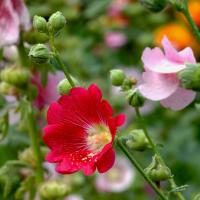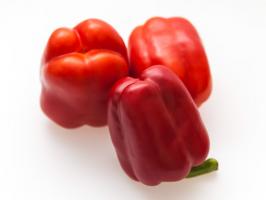Introduction
Eggshells are not only a common household waste but also a potential source of nutrients for plants. The question is whether they are good for plant soil or not. In this article, we will discuss the benefits and drawbacks of using eggshells for plant soil, and how to use them effectively.
Benefits of using eggshells for plant soil
Believe it or not, eggshells are rich in calcium, which is an essential nutrient for plant growth. Calcium helps plants develop strong cell walls, which leads to healthy and vigorous growth. In addition to calcium, eggshells also contain other minerals that are beneficial for plant soil, such as potassium and magnesium.
Another benefit of using eggshells for plant soil is that they can help neutralize acidic soils. Eggshells are alkaline in nature, which means they can help balance the pH level of acidic soil. This can be especially useful for plants that prefer slightly acidic soil, such as blueberries and rhododendrons.
Drawbacks of using eggshells for plant soil
While there are several benefits to using eggshells for plant soil, there are also some drawbacks to consider. One of the main drawbacks is that eggshells can take a long time to break down. This means that the nutrients they contain are not immediately available to plants. It can take several months for eggshells to decompose and release their nutrients into the soil.
Another potential drawback of using eggshells for plant soil is that they can attract pests. Ants, in particular, are attracted to the calcium in eggshells and may try to carry them away from your plants. This can be counterproductive, as you are trying to add nutrients to your soil, not feed the ants.
How to use eggshells effectively for plant soil
Despite the drawbacks, there are ways to use eggshells effectively for plant soil. One way is to crush them into small pieces before adding them to the soil. This can help speed up the decomposition process and make the nutrients more readily available to plants.
You can also grind up eggshells into a fine powder and add it to your soil mix before planting. This can help ensure that your plants have access to the nutrients from the eggshells from the beginning. Additionally, using powdered eggshells can help mitigate the problem of attracting pests, as the particles are too small for ants to carry away.
Another way to use eggshells for plant soil is to create an eggshell tea. To do this, simply crush up a few eggshells and soak them in water for several days. The water will absorb some of the nutrients from the eggshells, and you can then use the resulting tea to water your plants.
Conclusion
While there are both benefits and drawbacks to using eggshells for plant soil, they can be a valuable source of nutrients when used effectively. Whether you choose to crush them into small pieces, grind them into powdered form, or create an eggshell tea, you can help your plants grow stronger and healthier by adding eggshells to your soil.

 how many times do yo...
how many times do yo... how many planted tre...
how many planted tre... how many pine trees ...
how many pine trees ... how many pecan trees...
how many pecan trees... how many plants comp...
how many plants comp... how many plants can ...
how many plants can ... how many plants and ...
how many plants and ... how many pepper plan...
how many pepper plan...































